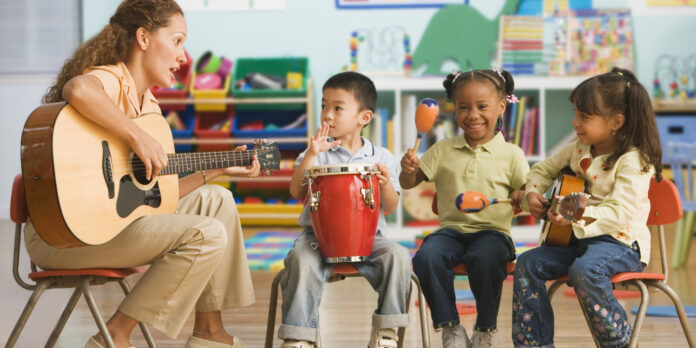
Every teacher aims at making their teaching effective and productive. However, it can be difficult to ensure effectiveness while teaching music to kids especially when you don’t have the right strategies.
While teaching music to kids, the main objective is not only to help them grasp the concepts but also to make the lesson interesting.
The teaching materials provided in the music curriculum are barely enough to help the kids learn it effectively.
This however does not mean that the curriculum is irrelevant. Teachers need to learn how to make their lessons interesting and engaging.
Remember that kids can easily lose interest when the lessons are too monotonous.
But you don’t have to be worried. Here are 10 best tips that can be for teaching it to kids more effectively:
1. Have a Positive Attitude
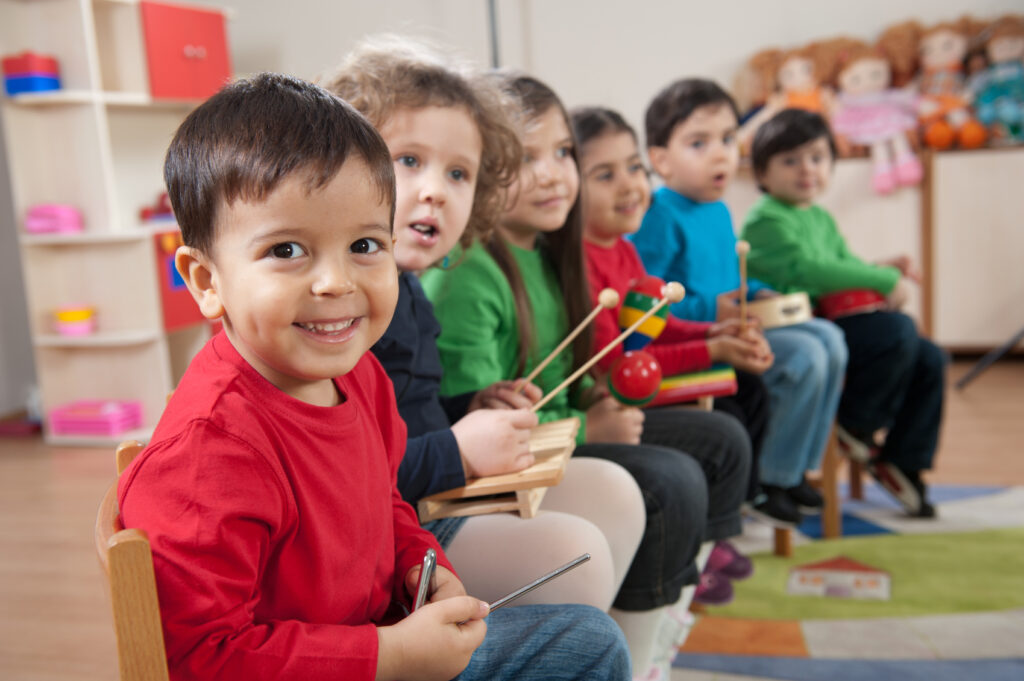
Music lessons require the teacher to have a good planning strategy because every class is different. Teaching can be more effective when you invest a good time in planning and preparation.
However, it can be tiring to plan continuously for every lesson you have to teach. Thus, you need to have a positive attitude to make this work.
Staying positive will help you plan for your classes constantly without getting overwhelmed.
When you are well planned, kids will feel motivated by your confidence and positive attitude. This can help them pick up the concepts easily.
2. Make Your Lesson Engaging

A lesson will not yield good results when learning just about reading and writing. Kids learn music best when they are actively engaged during the lesson.
When teaching music concepts, find some ways to incorporate practical activities. For instance, you may let the students sing and clap when teaching about rhythms.
Some games also contain important concepts that can be taught to younger kids.
Active engagement in class makes the kids feel energized and motivated. Motivated kids will find it easy to grasp the music concepts.
3. Teach with the Something They Like
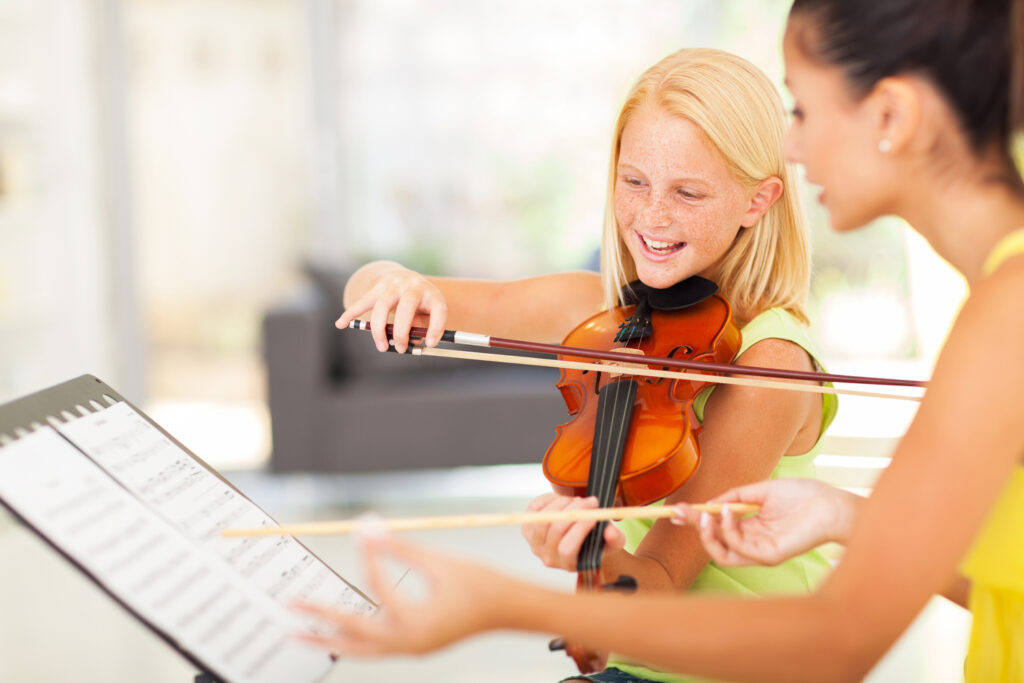
Your students will remain interested when you use music that they already know and like.
Consider using their favorite songs as teaching and learning resources. This could have a great impact on their perception of the lesson.
You don’t have to stick to the traditional sounds that have been used year in year out in lessons. Keep in mind that all types can be used to learn various musical concepts.
4. Let Technology Be Your Best Friend
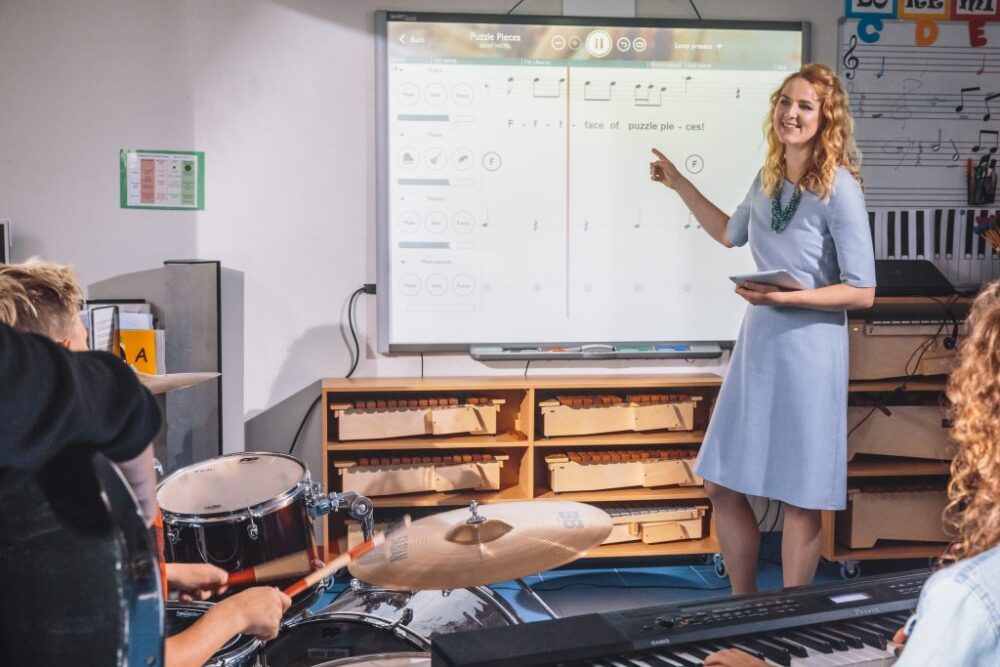
In modern days, technology has become accessible even for young kids. Thus, you should use digital resources while teaching it to children. This includes; digital drums, strings, digital keyboards, and so on.
See more digitalized musical gears on Roaming Sound that can make your lesson more effective.
Watching videos from apps like YouTube may also help to make the lesson interesting.
Moreover, there are digital educational apps such as full notation that can be used to teach music to kids.
5. Encourage the Kids to Interact
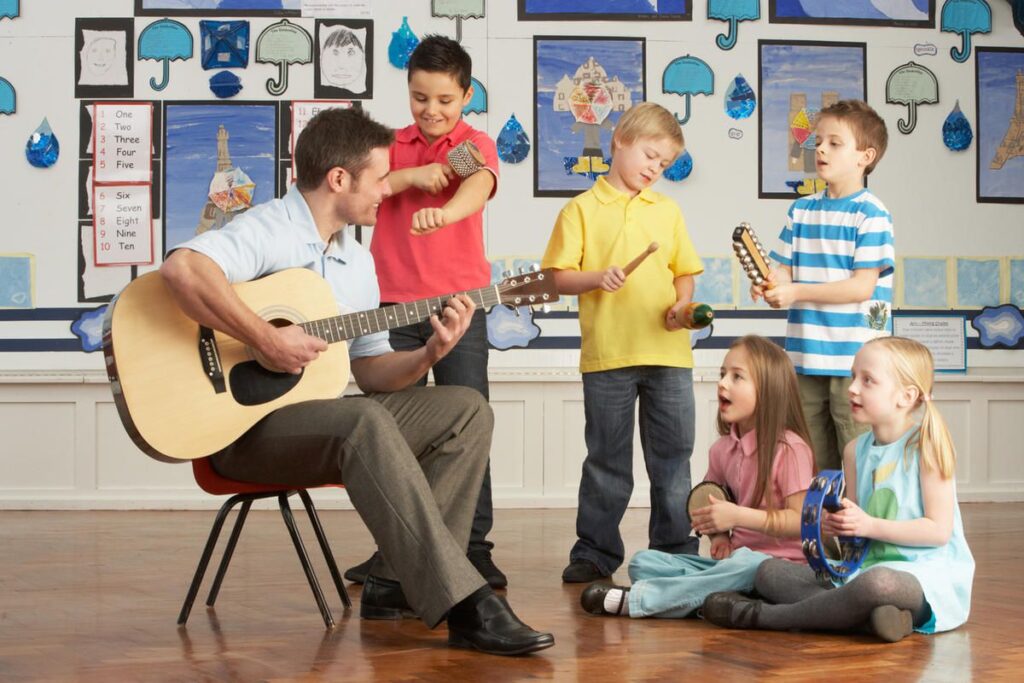
Although the individual practice is significant, music lessons can be great when you allow interactions between your students.
You may put your students into small groups and encourage every student to contribute.
Remember to consider the level of skills and interests of each student while placing them in groups. Students with similar interests should be placed together so that they stimulate each other.
Collaborative learning enables kids to help each other while learning complex music concepts.
6. Know Your Students’ Different Levels of Skills
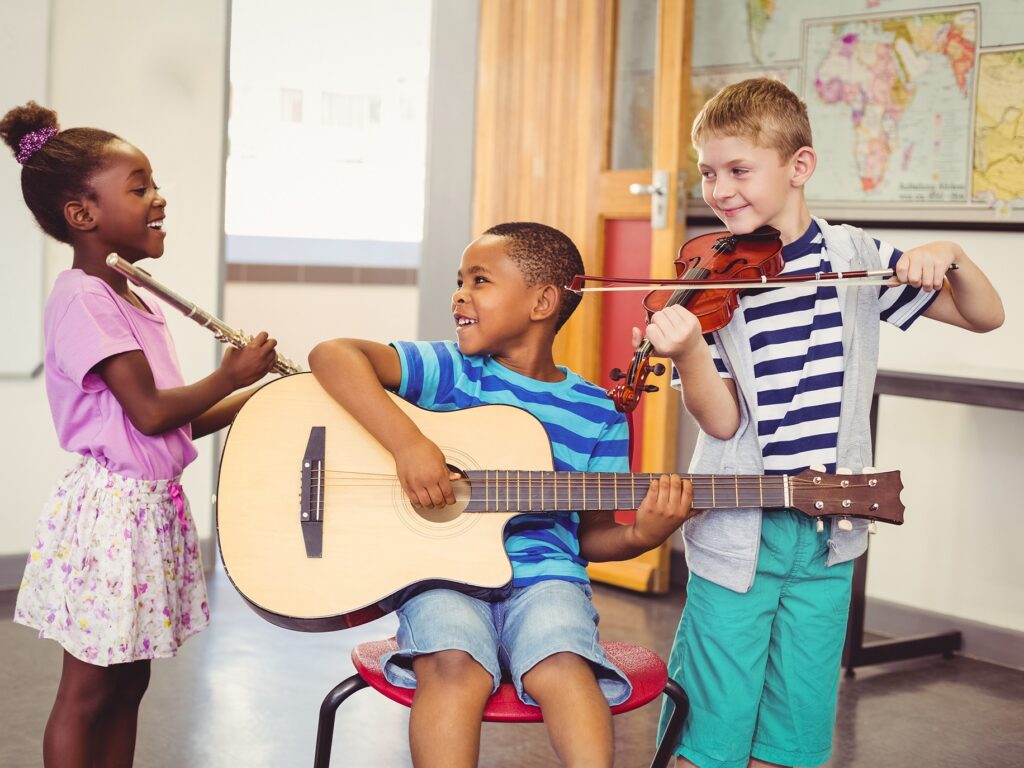
Knowing your students helps you to examine their different needs and plan on how to address them.
You should maintain good communication with the kids’ parents to ensure that you learn more about your students. Parents know their kids better and therefore they can help you identify their strengths and weaknesses.
Once you identify their skill levels, use a variety of teaching strategies to ensure that all the students benefit. Then create a variety of learning experiences that are appropriate to your pupils.
More importantly, always remember that children learn music best when the lesson is fun and interesting.
7. Find the Necessary Resources
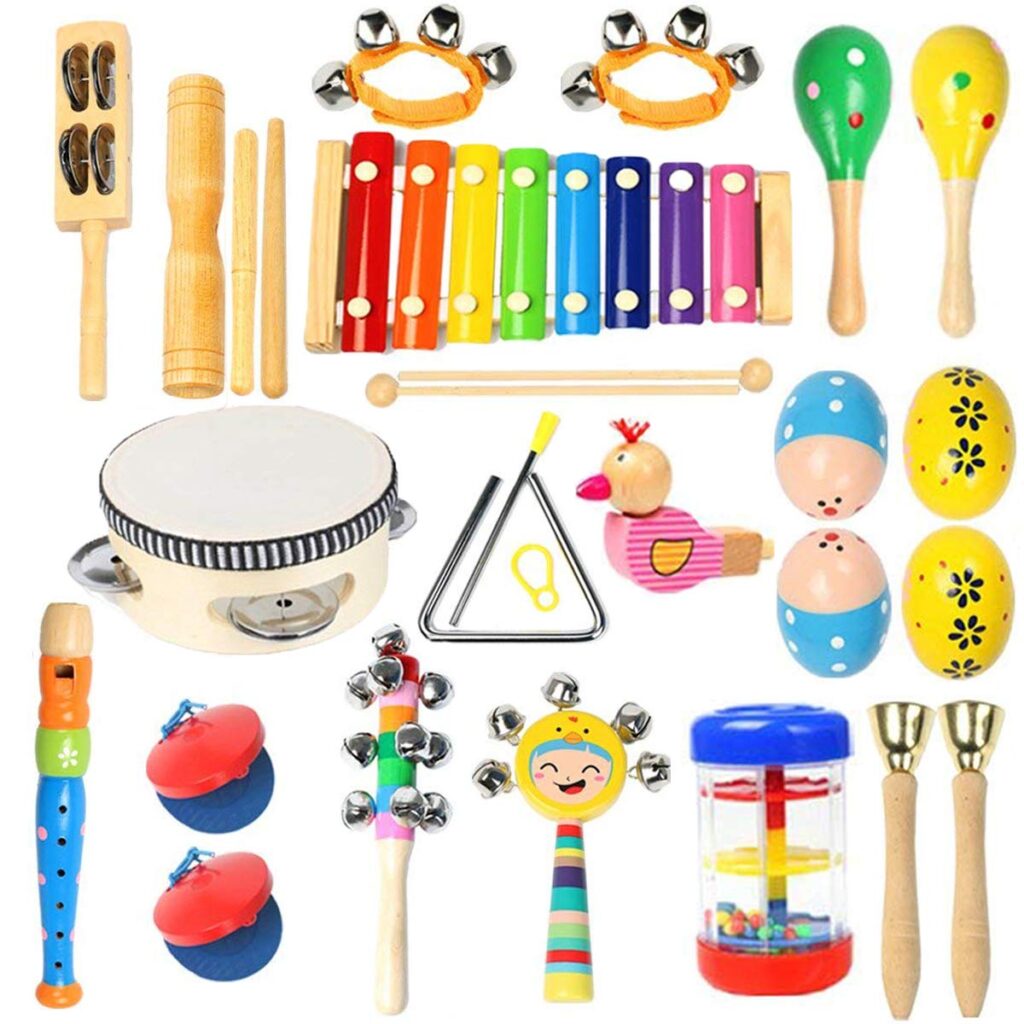
Learning resources are essential when it comes to effective teaching. You might need to use resources such as keyboards, a laptop, or a smartphone, games, and instruments for teaching music.
If the school does not have enough resources, you should allow the kids to bring their small music instruments to class.
If you are teaching about instruments, ensure that you have enough of them so that the kids can practice.
You can also encourage your students to suggest the resources that they find useful to them.
Sometimes your students may want to be recorded as they practice or even perform online. As a teacher, you should ensure that you acquire all the necessary materials.
8. Use Creative Projects

Giving your students notes is hardly enough for teaching it effectively. Ideally, concepts are learned best when they are practiced.
Find some creative projects such as creating a YouTube channel that will help your students learn more musical skills.
You should also be able to initiate creativity in students and help them share their creative ideas with others. This could be achieved by dividing the students into small groups where they can interact freely and learn from each other.
9. Set Specific Goals
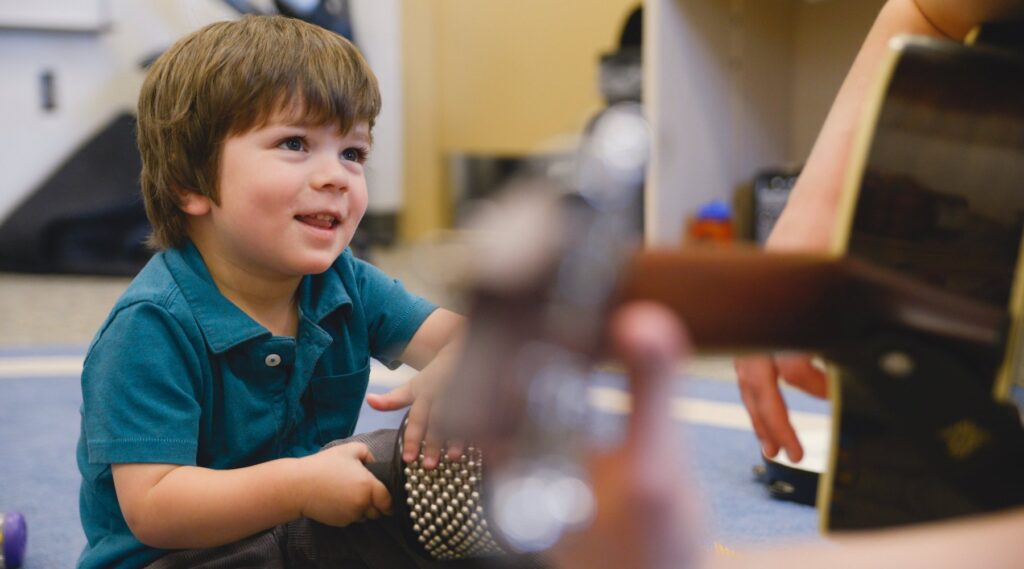
Writing down your goals will help you manage the limited time allocated for your music lesson. You could have a goal of performing a specific song at the end of the term.
Both short- term and long- term goals help you to have a sense of direction on what to teach at what time.
Ensure that you keep checking your progress towards attaining your goals.
10. Don’t Treat Music Like Other Subjects
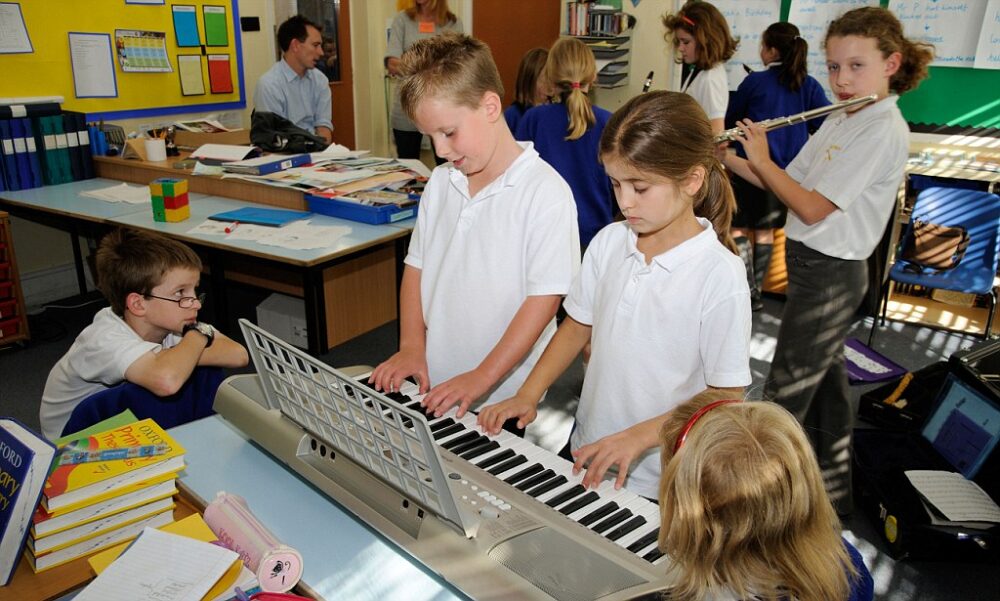
Remember that music is different from other educational subjects like Math or Science.
Help your students perceive music differently by finding out what they like and allowing them to play their favorite instruments. This will help them stay motivated and make your teaching more effective.








